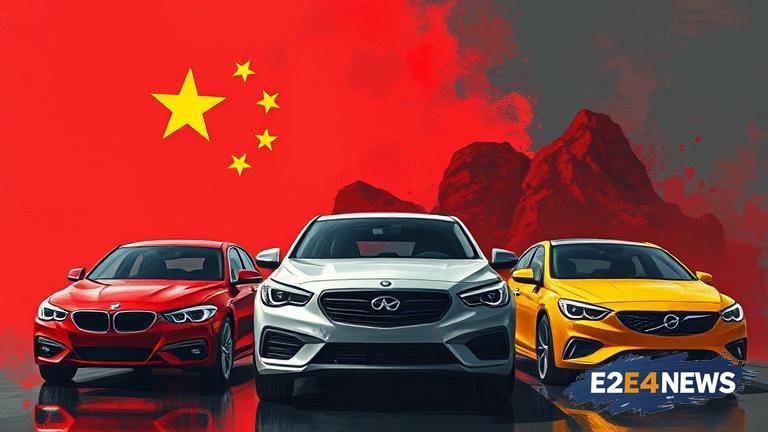The US auto industry is facing a significant challenge from Chinese automakers, who are rapidly gaining ground in the global market. Chinese companies such as Geely, BYD, and Great Wall Motors are investing heavily in electric vehicle technology and expanding their production capacity. This has led to concerns that the US auto industry could be facing an existential threat, as Chinese automakers are able to produce high-quality vehicles at a lower cost. The Chinese government has also been providing significant support to its automakers, including subsidies and tax incentives, which has helped them to gain a competitive edge. The US auto industry, on the other hand, has been slow to adapt to the changing market trends, and has been criticized for its lack of investment in electric vehicle technology. The rise of Chinese automakers has also led to concerns about job losses in the US, as well as the potential for Chinese companies to acquire US automakers. Some experts have warned that the US auto industry could be facing a crisis similar to the one faced by the US steel industry in the 1980s, when it was unable to compete with low-cost imports from Japan and other countries. The US government has been urged to take action to support the US auto industry, including providing incentives for investment in electric vehicle technology and imposing tariffs on Chinese imports. However, others have argued that the US auto industry needs to adapt to the changing market trends and focus on producing high-quality vehicles that can compete with Chinese automakers. The rise of Chinese automakers has also led to concerns about the potential for intellectual property theft, as well as the use of forced labor in Chinese factories. The US auto industry has a long history of innovation and has been a major driver of economic growth in the US, but it is facing significant challenges in the coming years. The industry will need to adapt quickly to the changing market trends and invest in new technologies in order to remain competitive. The US government will also need to play a role in supporting the industry, including providing incentives for investment and imposing tariffs on unfair imports. The future of the US auto industry is uncertain, but one thing is clear: it will need to be able to compete with Chinese automakers in order to survive. The US auto industry has been a major employer in the US, with thousands of workers employed in factories and dealerships across the country. The industry has also been a major contributor to the US economy, with billions of dollars in revenue generated each year. However, the rise of Chinese automakers has led to concerns about the potential for job losses and economic disruption. The US auto industry will need to be able to adapt to the changing market trends and invest in new technologies in order to remain competitive and protect American jobs.
Sat. Nov 1st, 2025
